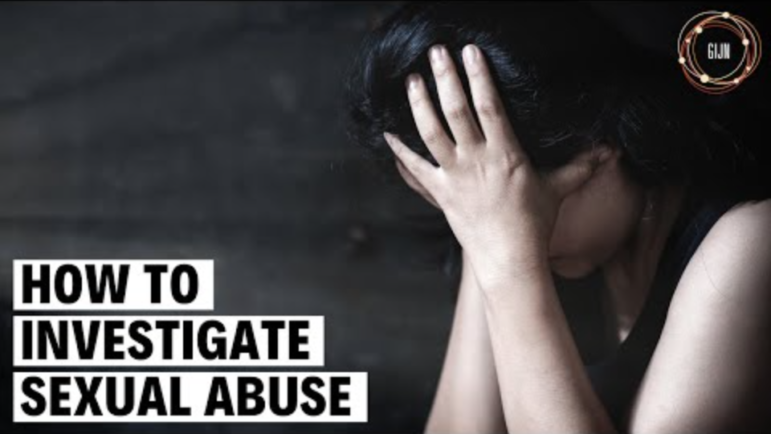
Image: GIJN, YouTube
In 2020, GIJN first launched a guide to investigating sexual abuse, sexual violence, and other sexual crimes in conflict zones. Thanks to reporting by GIJN’s Leonardo Peralta and editing by Nikolia Apostolou, we’ve now updated the full reporting guide with new resources and recent case studies.
The subject of sexual violence remains a sensitive if not taboo subject in much of the world and often goes unreported. Watchdog journalism has started digging deeper into sexual violence, but these investigations are still few relative to the estimated number of cases worldwide.
The World Health Organization (WHO) defines sexual violence as “any sexual act, attempt to obtain a sexual act, unwanted sexual comments or advances, or acts to traffic or otherwise directed against a person’s sexuality using coercion, by any person regardless of their relationship to the victim, in any setting, including but not limited to home and work.”
In conflict zones, the situation is perilous — according to the UN, for every rape that is documented in war, between 10 and 20 rapes go unreported. But even in more stable societies, the numbers are alarming. According to the US Department of Justice, nearly 80% of rapes and sexual assaults go unreported. In Indonesia, Lentera Sintas, a support group for victims of rape, reported that number is over 90%. Meanwhile, the University of Southern Denmark found that, despite that the Nordic country being regarded as one of the safest for women, 890 rapes were reported in a year, while 24,000 women had actually experienced rape or attempted rape. Among the reasons for refusing to report assaults, survivors mention shame, fear of reprisal, judgment, or even being ostracized from their social group, along with the injustice they may face in criminal trials.
This newly updated guide is based on tips and techniques drawn from this previous GIJN webinar, Investigating Sexual Abuse (See YouTube video below).
Additional Resources
Investigating Sexual Abuse: An Updated Reporting Guide
How They Did It: Breaking the Ebola Sexual Abuse Scandal in Africa
A Cross-Border Collaboration Exposes Digital Sex Crimes in Asia
